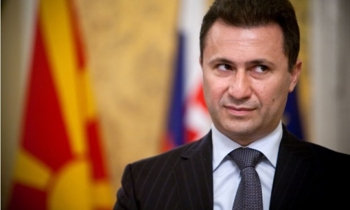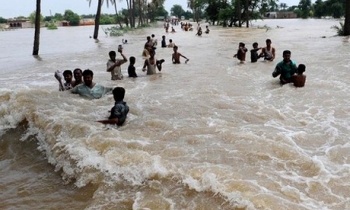China has adopted an emergency response law that bans the spread of false information, but also requires timely information from the government about major accidents, health threats and disasters. The law outlines punishments for media outlets that spread false information about disasters — a move that press freedom organisaitons say is designed to muzzle reporters.

The emergency response law provides guidelines for the government, public and media on how to handle information about industrial accidents, natural disasters, health and public security hazards, the official Xinhua News Agency said, acording to the Associated Press (AP).
“Adopting legislation on the management of public emergencies may be a good thing, but turning it into a tool for reinforcing censorship is unacceptable,” Reporters sans Frontières (RSF) said. “All the Chinese media are already controlled by the Publicity Department, and this law in practice deprives them of the ability to provide an alert service in situations of crisis.”
The law, which comes into effect November 1, "bans the fabrication and spread of false information on accidents and disasters and requires the government to provide accurate and timely information." It was passed by the National People's Congress, the country's legislature. "People's governments in charge of coping with an emergency should provide unified, accurate and timely information on the emergency and its development," Xinhua reported.
China has a history of keeping major health threats and disasters secret but has become more open since grappling with SARS in 2003. Beijing was then accused of abetting the international spread of severe acute respiratory syndrome by keeping initial cases secret, the AP report said. As international criticism rose — and the economic toll of SARS became apparent — China moved to publicize and contain the disease. Orders soon followed to upgrade nationwide disaster management skills and equipment.

Xinhua said that the law states that media organisations can have their business licenses revoked if they violate the emergency response law and the offenses lead to serious consequences. China frequently bans state media from covering coal mine and other industrial disasters for fear of provoking social unrest.
The law’s initial draft included provision for fines of between 50,000 and 100,000 yuan on news media that published unauthorised reports about emergencies, according to RSF. This provision was withdrawn, but the final version nonetheless stipulates that news media could lose their licence if they put out false information on accidents and disasters.
The law also requires coal mines, construction sites, and work units who make or handle explosives, dangerous chemicals or radioactive material to have detailed emergency plans in place.
In practice, RSF argued, the media will be limited to reproducing Xinhua’s despatches on “industrial accidents, natural disasters, health and public security hazards” and will be unable to conduct their own investigations. A Xin Kuaibao (New Express) columnist last year argued that “there will be no way of verifying whether the information coming from the authorities is true and accurate” and that the law could “become a way for corrupt officials to hide their dishonesty.”









